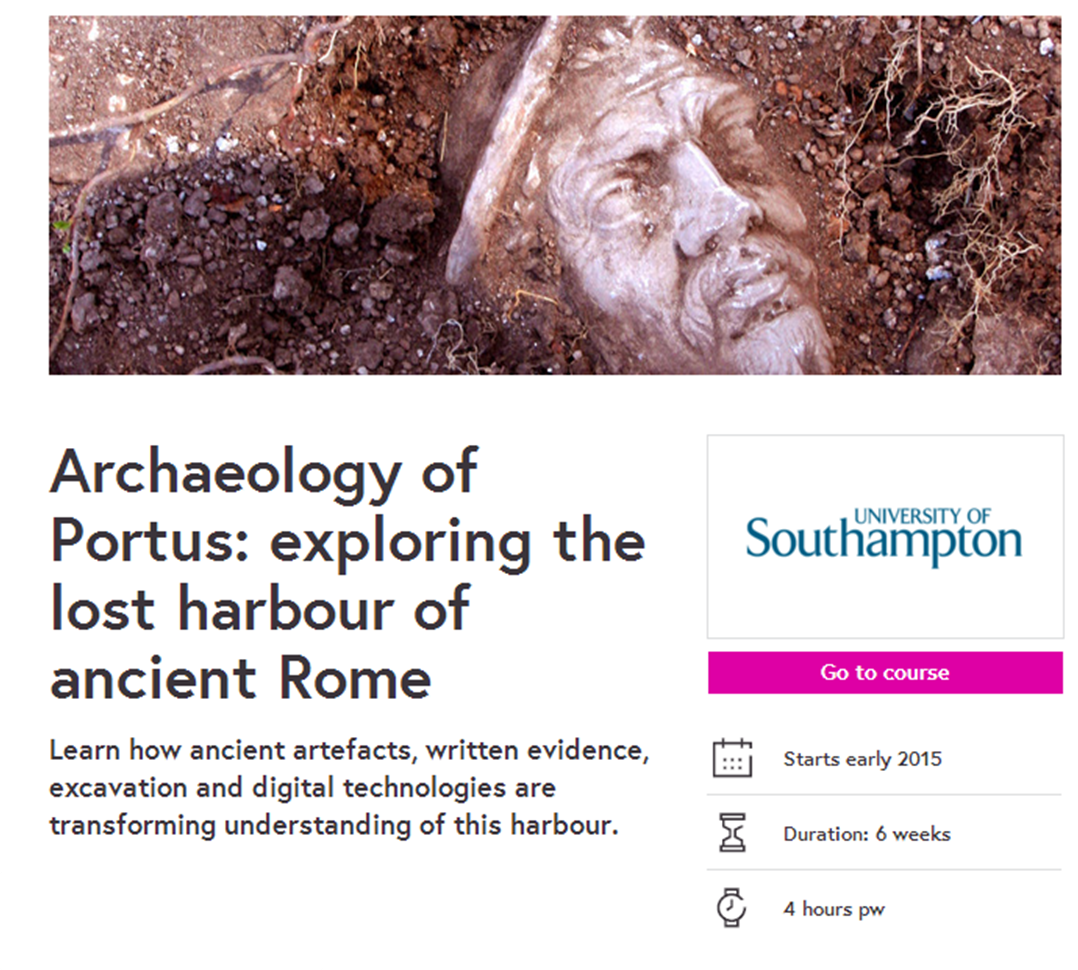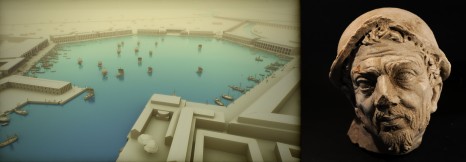Portus MOOC – Archaeology of Portus: Exploring the Lost Harbour of Ancient Rome

In 2013 the University of Southampton and FutureLearn ran a MOOC (Massive Open Online Course), focusing on the archaeological work in progress at the Roman site of Portus for the first time, with other iterations in 2014, 2015 and 2018. The Archaeology of Portus course is one of a number of Southampton-based courses that was made available for people to study online, for free, wherever they were based in the world, in partnership with FutureLearn. It was the hope that this exciting opportunity appealed as a taster for people considering more formal educational programmes in this area, or to anyone with a particular interest in Roman archaeology, archaeological methods, and the site of Portus. The response to the first running of the course was fabulous, with thousands of learners contributing for than 20,000 comments, filled with their ideas, questions and other contributions. The Portus online course built upon our previous work to share our fascination with the site and this period of history, via the BBC One Rome’s Lost Empire documentary and using exciting digital technologies. It also linked online learners with the kinds of fieldwork activities and other Portus archaeological research that happened on site, providing those unable to attend the Portus Field School with an insight into archaeological research. No prior subject knowledge was required, just enthusiasm and willingness to engage in building a global online community of interest around this fabulous location. The course covered 9 topics each of which will require 2-6 hours of study, through a combination of video, articles, activities, access to original data, and interactions via social media. The Portus MOOC introduced the site and its place and importance within the Roman world. It also provided an opportunity to study the types of finds recovered from Portus and the many methods used to make sense of the exciting archaeology being uncovered by the Portus Project. Participants could either choose to complete the whole programme, or elect to dip into particular topics of interest as and when time allows. The then Vice Chancellor of the University of Southampton Don Nutbeam had this to say: “I have been deeply impressed by the enthusiasm that has been observable within the University community for MOOCs, much of it inspired by a commitment to improve access to world-class learning opportunities to millions around the world who otherwise would have little or no access.” The Portus MOOC initiative reflected the University’s commitment to multidisciplinary research at Portus, which bridges archaeology, electronics and computer science, ocean and earth science, geography, psychology, engineering, art and the humanities. It also built upon the importance that the Portus Project has attached to active collaborative relationships with colleagues, universities and research institutions including the UK, France and Italy.

